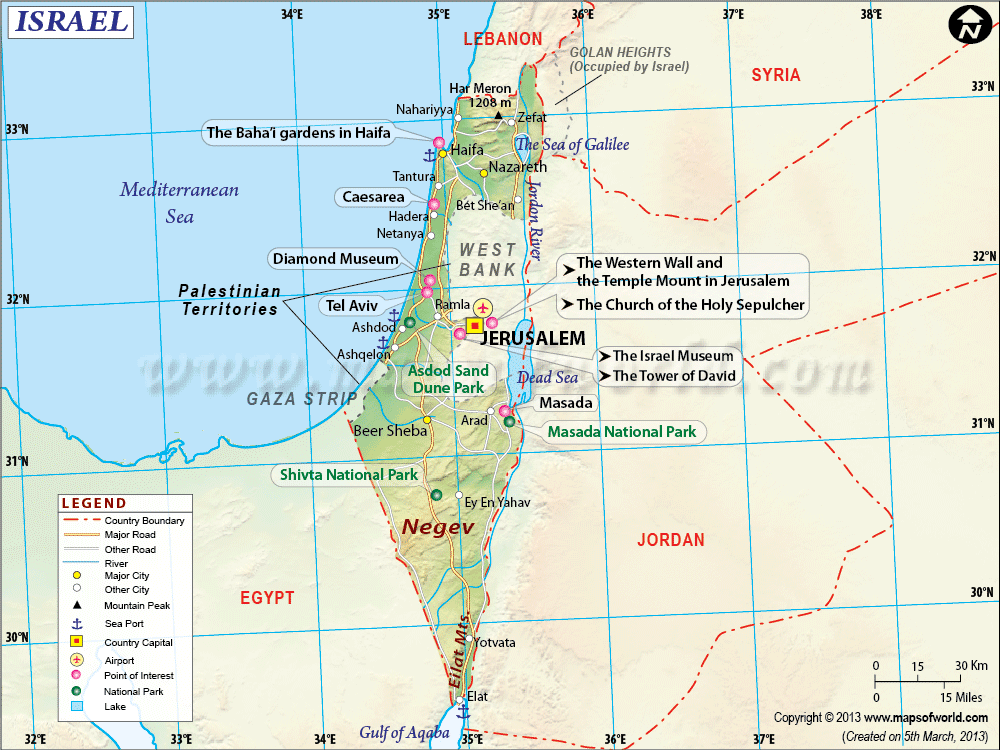Move against Israel
March 26, 2018 | Expert Insights

On March 23rd, 2018, a group of countries may be bringing out a resolution at the UN Human Rights Council calling for UN member states to halt the sale of any arms to Israel that could be used to violate international human rights laws
Background
Israel is the world's only Jewish state. The Jews staked claim for a land of their own due to religious reasons. They trace their origins to Abraham, who they consider as their patriarch. A number of Jews migrated to Europe predating the Roman Empire. In fact, they accounted for 10% of the population. Though a prosperous commune, the Jews were subjected to a wide range of restrictions and discrimination.
In 1947, United Nations adopted a plan to partition Palestine into Arab and Jewish sections. In the immediate aftermath, the war between Arab nations and Israel took place. The Arabs were initially on the offensive, but their military resources dried up when the UN declared an arms embargo on the region. Only Czechoslovakia violated the agreement and provided weapons to Israel. In 1949, Israel signed a series of armistice agreements with the Arab nations involved. No peace treaties were signed and in 1967, Israel fought the decisive “Six Day War” against Egypt, Jordan and Syria.
Major wars such as the War of Attrition, Yom Kippur War and the Gaza War have been fought over the years. Nearly every effort by the international community to establish peace in the region has failed.
Israel’s GDP per capita is more than $35,000, and the unemployment rate is at 5%. Due to historical reasons, Palestine has not been able to form a completely independent economic system. Foreign direct investment is almost non-existent. Israel is ranked 19 on the UN’s Human Development Index ranking of 177 countries.

Analysis
The government of Israel has been criticized for issues regarding Israeli settlements in the Palestinian territories, its treatment of Palestinian Arabs, the conduct of Israeli Defense Forces during conflicts and the blockade of the Gaza Strip, of Palestinian territories. Other historic issues with ongoing consequences have also been criticized including: the refusal to allow post-war Palestinian refugees and their descendants to return to their homes, and the prolonged occupation of territories gained in war and the construction of settlements therein. The region has also been criticized for the proxy wars it is conducting across Middle East.
It has been revealed that the UN Human Rights Council may vote on March 23rd to call for UN member states to halt the sale of any arms to Israel that could be used to violate international human rights laws. The resolution “calls upon” on states to take steps to ensure “that their public authorities and private entities do not become involved in internationally unlawful conduct, inter alia the provision of arms to end-users known or likely to use the arms in the commission of serious violations of international humanitarian and/or human rights law.”
This particular resolution is currently being sponsored by Bangladesh, Bolivia, Chile, Cuba, Ecuador, Jordan, Pakistan, Venezuela and the Palestinian Authority. A similar resolution was brought up a year ago and it was dismissed. Experts have stated that the current resolution will also meet a similar fate.
“It is another nasty resolution against Israel,” said former Foreign Ministry legal adviser Alan Baker. He added, “I do not think it has any teeth. The human rights council has proved itself to be a body that has no credibility and is virulently anti-Israel.”
Assessment
Our assessment is that Israel’s activities against Palestine have incurred international criticism. The country is once again under fire since it passed a law that would make it easier for the government to strip any Palestinian living in Jerusalem of their residency rights. However, such resolutions will not be supported by majority of UN nations. Even Middle East nations like Saudi Arabia have begun normalizing their ties with Israel.








Comments